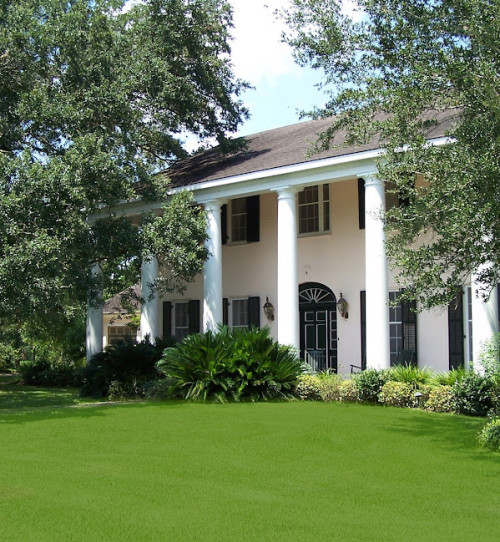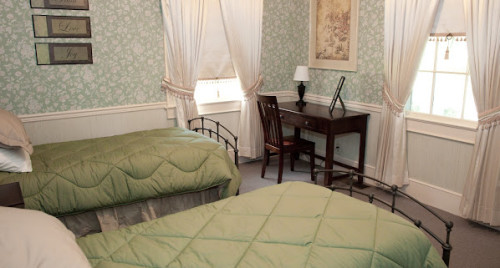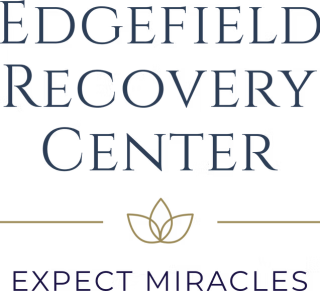






Edgefield Recovery Center
Treatment Focus
This center treats substance use disorders and co-occurring mental health conditions. Your treatment plan addresses each condition at once with personalized, compassionate care for comprehensive healing.
Primary Level of Care
Offering intensive care with 24/7 monitoring, residential treatment is typically 30 days and can cover multiple levels of care. Length can range from 14 to 90 days typically.
Claimed
Recovery.com has connected directly with this treatment provider to validate the information in their profile.
Treatment Focus
This center treats substance use disorders and co-occurring mental health conditions. Your treatment plan addresses each condition at once with personalized, compassionate care for comprehensive healing.
Primary Level of Care
Offering intensive care with 24/7 monitoring, residential treatment is typically 30 days and can cover multiple levels of care. Length can range from 14 to 90 days typically.
Provider's Policy
We accept most major health insurance plans.
Edgefield Recovery Center
Edgefield Recovery Center
About Edgefield Recovery Center
Edgefield Recovery Center is a detox and residential program for men and women struggling with alcohol and drug addiction, as well as co-occurring disorders. Edgefield is based on the 12-Step model and follows a therapeutic community model. They emphasize the autonomy of clients over their treatment recovery and employ therapeutic methods such as cognitive behavioral therapy (CBT) and rational emotive behavioral therapy (REBT).
The center offers medical detox, residential care, and intensive outpatient treatment. During the on-site detox, clients are treated for the physical, mental, emotional, and spiritual symptoms of withdrawal and are supervised by 24-hour medical staff. Residential and intensive outpatient treatment consists of individual and group therapy, community 12-Step meetings, nutritional and addiction education, life skills training, and aftercare planning. A family program is also offered to promote healing for the client as well as their family members. Therapeutic goals within the program include reconnecting with the true self, addressing self-delusion, and promoting community over the isolating effects of the disease. Additionally, skills within the program prevent relapse and contribute to a successful re-entry into family, employment, and society.
Edgefield Recovery is located in a historic, renovated manor in the Louisiana countryside. Clients can enjoy the 27 acres of beautiful greenery, a pecan orchard, and a bayou that swings through the back of the property. The manor can have up to 70 clients and offers shared bedrooms, as well as a communal kitchen and lounge space. The center is a blackout facility, meaning it does not allow personal cell phone or laptop use. Edgefield accepts private insurance, third-party payers, and Medicaid. It is Joint Commission accredited.
Center Overview
Treatment Focus
This center treats substance use disorders and co-occurring mental health conditions. Your treatment plan addresses each condition at once with personalized, compassionate care for comprehensive healing.
Joint Commission Accredited
The Joint Commission accreditation is a voluntary, objective process that evaluates and accredits healthcare organizations (like treatment centers) based on performance standards designed to improve quality and safety for patients. To be accredited means the treatment center has been found to meet the Commission's standards for quality and safety in patient care.
Insurance Accepted
Cash Pay Rates
Estimated Cash Pay Rate
Center pricing can vary based on program and length of stay. Contact the center for more information. Recovery.com strives for price transparency so you can make an informed decision.
Levels of Care






Your Care Options
Specializations
Alcohol
Using alcohol as a coping mechanism, or drinking excessively throughout the week, signals an alcohol use disorder.
Drug Addiction
Drug addiction is the excessive and repetitive use of substances, despite harmful consequences to a person's life, health, and relationships.
Opioids
Opioids produce pain-relief and euphoria, which can lead to addiction. This class of drugs includes prescribed medication and the illegal drug heroin.
Who We Treat
Approaches
Therapeutic Community
Therapeutic communities allow patients to contribute to the success and progress of their community, through healthy behaviors or even basic chores.
Twelve Step
Incorporating spirituality, community, and responsibility, 12-Step philosophies prioritize the guidance of a Higher Power and a continuation of 12-Step practices.
Therapies
1-on-1 Counseling
Patient and therapist meet 1-on-1 to work through difficult emotions and behavioral challenges in a personal, private setting.
Rational Emotive Behavior Therapy
A type of cognitive therapy that identifies negative self-defeating thoughts and behaviors, rewriting beliefs to be positive, empowering, and present.
Twelve Step Facilitation
12-Step groups offer a framework for addiction recovery. Members commit to a higher power, recognize their issues, and support each other in the healing process.
Conditions We Treat
Grief and Loss
Grief is a natural reaction to loss, but severe grief can interfere with your ability to function. You can get treatment for this condition.
Trauma
Some traumatic events are so disturbing that they cause long-term mental health problems. Those ongoing issues can also be referred to as "trauma."
Substances We Treat
Alcohol
Using alcohol as a coping mechanism, or drinking excessively throughout the week, signals an alcohol use disorder.
Benzodiazepines
Benzodiazepines are prescribed to treat anxiety and sleep issues. They are highly habit forming, and their abuse can cause mood changes and poor judgement.
Co-Occurring Disorders
A person with multiple mental health diagnoses, such as addiction and depression, has co-occurring disorders also called dual diagnosis.
Cocaine
Cocaine is a stimulant with euphoric effects. Agitation, muscle ticks, psychosis, and heart issues are common symptoms of cocaine abuse.
Drug Addiction
Drug addiction is the excessive and repetitive use of substances, despite harmful consequences to a person's life, health, and relationships.
Heroin
Heroin is a highly addictive and illegal opioid. It can cause insomnia, collapsed veins, heart issues, and additional mental health issues.
Opioids
Opioids produce pain-relief and euphoria, which can lead to addiction. This class of drugs includes prescribed medication and the illegal drug heroin.
Languages
Aftercare
Care Designed for Your Needs
Personal Amenities
Amenities
Activities
What people are saying
Treatment
2.7
Accommodations
2.7
Food & Nutrition
2.7
Value
2.7
Katie
Reviewed 11/17/20
Review from Rehabs.com
unknown
Reviewed 05/06/15
Review from Rehabs.com
Connie
Reviewed 07/27/17
Review from Rehabs.com
lwl
Reviewed 05/20/15
Review from Rehabs.com
cb
Reviewed 10/15/14
Review from Rehabs.com






